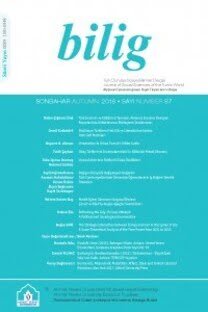Sosyal Öğrenme Teorisinin, İlköğretim 6. Sınıf Öğrencilerindeki Akademik Benlik Kavramı Puanlarının Kalıcılığına Etkisi
Bu araştırmada, ilköğretim öğrencilerinin akademik benlik kavramı gelişimine yönelik olarak, sosyal öğrenme teorisine dayalı öğretim etkinliklerinin uygulama sonuçlarına yer verilmiştir. Araştırma, ilköğretim okullarında öğrenim gören üç farklı okulun, 6.sınıf deney ve kontrol grupları üzerinde gerçekleştirilmiştir. İki kontrol grubunun alınması ile, öğretmen faktörünün araştırma üzerindeki etkisi azaltılmaya çalışılmıştır. Deney grubunda, sosyal öğrenme teorisine dayalı öğretim etkinliklerine yer verilirken, kontrol grubu I ve kontrol grubu II’ de mevcut uygulamadaki fen bilgisi öğretim programının içerdiği öğretim etkinlikleri ele alınmıştır. Araştırma verileri, akademik benlik kavramı ölçeğinin ön test-son test ve kalıcılık test uygulaması sonucunda elde edilmiştir. Araştırma sonuçları, deney grubunda uygulamasına yer verilen sosyal öğrenme teorisine dayalı öğretim etkinliklerinin, öğrencilerin akademik benlik kavramlarının gelişimine ve bunun devamına katkı sağladığını göstermiştir.
The Effect of Social Learning Theory on the Permanence of Academic Self-Concept Scores of 6th Grade Elementary Students
This study focuses on the results of applying teaching methods based on social learning theory to elementary students in order to develop their academic self-concept. The experiment carried out in this study involves experimental and control groups of 6th grade students attending three different elementary schools. Two control groups were made use of in order to reduce the effect of the teacher factor on the results of the experiment. In the experimental group instruction was carried out through teaching activities based on social learning theory. In control groups I and II, on the other hand, the teaching activities employed were those included in the current science education program. The data for this research were obtained after the application of the academic self-concept scale as a pre-test, post-test, and permanence test. Research results demonstrated that teaching activities based on social learning theory contribute significantly to the development and permanence of students’ academic self-concept.
___
AKBAŞ, Oktay. (2004), Türk Milli Eğitim Sisteminin Duyuşsal Amaçlarının İlköğretim II. Kademedeki Gerçekleşme Derecesinin Değerlendirilmesi. Ankara: Gazi Üniversitesi Eğitim Bilimleri Enstitüsü. (Yayınlanmamış Doktora Tezi).BACANLI, Hasan.(1999), Duyuşsal Davranış Eğitimi, Ankara: Nobel Yayın Dağıtım.
BANDURA, Albert. (1971), Psychological Modeling: Conflicting Theories, Chicago: Aldine-Atherton Inc.
BANDURA, Albert. (1986), Social Foundations of Thought and Action: A Social Cognitive Theory, Englewood Cliffs, NJ: Prentice-Hall.
BIKMAZ, Fatma Hazır. (2001), İlköğretim 4. ve 5. Sınıf Öğrencilerinin Fen Bilgisi Dersindeki Başarılarını Etkileyen Faktörler. Ankara: Ankara Üniversitesi Sosyal Bilimler Enstitüsü. (Yayınlanmamış Doktora Tezi).
BLOOM, Benjamin S. (1998), İnsan Nitelikleri ve Okulda Öğrenme. (Çev. Durmuş Ali Özçelik), İstanbul: Milli Eğitim Basımevi.
BÜYÜKÖZTÜRK, Şener. (2001), Deneysel Desenler: Ön Test Son Test Kontrol Gruplu Desen, Ankara: Pegem Yayınları.
ERHAN, Tuğba Erhan. (2000), İlköğretim Hayat Bilgisi Dersinin Drama İle Verilmesinin Dersin Öğrenilmesine ve Çocukların Benlik Kavramlarına Etkisinin İncelenmesi. Ankara: Hacettepe Üniversitesi Sağlık Bilimleri Enstitüsü. (Yayınlanmamış Bilim Uzmanlığı Tezi).
HARTY, Harold., SAMUEL, K.V., BEALL, Dwight. (1986), “Exploring Relationships Among Four Science Teaching-Learning Affective Attributes of Sixth”, Journal of Research in Science Teaching, 23, (1), 51-60.
HASAN, E. Omar. (1985), “An Investigation Into Factors Affecting Attitudes Toward Science of Secondary School Students in Jordan”, Science Education, 69, (1), 3-18.
HOUSE, Daniel. J. (1996). “Student Expectancies and Academic Self-Concept as Predictors of Science Achievement. The Journal of Psychology, 130, (6), 679-681.
MARSH, Herbert. W., YEUNG, Alexander. Seeshing. (1997), “Causal Effects of Academic Self Concept on Academic Achievement Structural Equation Models of Longitudinal Data”, Journal of Educational Psychology, 89, 41-54.
PAJARES, Frank. (2003), “Self-Efficacy Beliefs, Motivation and Achievement in Writing: A Review of the Literature”, Reading and Writing Quarterly, 19, 139-158.
SANCHEZ, Francisca., RODA, Maria. (2003), “Relationship Between Self-Concept and Academic Achievement in Primary Students” Electronic Journal of Research in Educational Psychology and Psychopedagogy. 1, (1), 95-120.
SELVİ, Kıymet. (1996), “Tutumların Ölçülmesi ve Program Değerlendirme”, Anadolu Üniversitesi Eğitim Fakültesi Dergisi, 6 (2), 39-53.
SENEMOĞLU, Nuray. (1989), Öğrenci Giriş Nitelikleri ve Öğretme-öğrenme Süreci Özelliklerinin Matematik Dersindeki Öğrenme Düzeyini Yordama Gücü. Ankara: Yayınlanmamış Araştırma Raporu.
TUCKMAN, Bruce, W. (1991), Educational Psychology, from Theory to Application. Florida: Harcourt Brace Jovanovich, Inc.
YEŞİLYAPRAK, Binnur ve Diğ. (2002), Gelişim ve Öğrenme Psikolojisi. Ankara: Pegem A Yayıncılık.
YÖK/DÜNYA BANKASI MİLLİ EĞİTİMİ GELİŞTİRME PROJESİ. (1997a), Fizik Öğretimi. Ankara.
YÖK/DÜNYA BANKASI MİLLİ EĞİTİMİ GELİŞTİRME PROJESİ. (1997b), İlköğretim Fen Öğretimi. Ankara.
- ISSN: 1301-0549
- Yayın Aralığı: Yılda 4 Sayı
- Başlangıç: 1996
- Yayıncı: Ahmet Yesevi Üniversitesi Mütevelli Heyet Başkanlığı
Sayıdaki Diğer Makaleler
Köl Tigin Yazıtının Kuzey Yüzünün 6. Satırında Bir Düzeltme Denemesi ve Bir Öneri
Çankırı Fatihi Karatekin'in Türbesi
Tanzimat Gramerlerinde Bazı Eklerin İmlası ve Dudak Uyumu ile İlgili Uyarılar
Türk İmalat Sanayiinde İllere Göre Yerelleşme ve Kentleşme Ekonomilerinin Belirlenmesi
Ümit SEYFEDDİNOĞLU KIYMALIOĞLU, Damla AYOĞLU
Tatar Türklerinde Mitolojik Varlıklarla İlgili Mitler ve İnanışlar (İyeler ve Yaratıklar)
Eğiticinin Performansını Niteleyen Faktörler
Fahriyeler Işığında Osmanlı Şiirinde İdeal Şairin Portresi
Sibirya Türklerinde Ateşle İlgili İnançlar, Törenler ve Bazı Efsaneler
